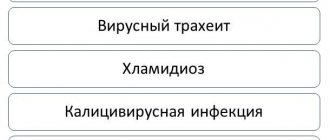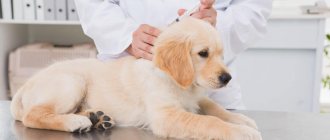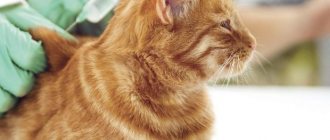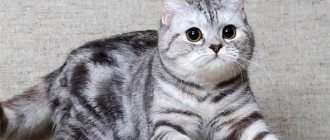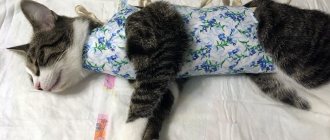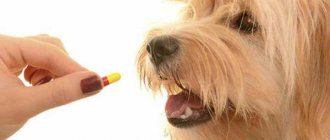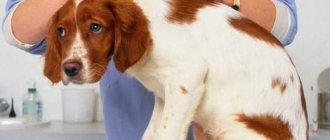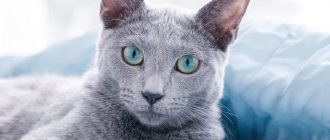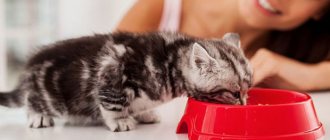Scottish Fold kittens are vaccinated at an early age. Veterinarians advise vaccination when babies are about 3 months old. In exceptional situations, the injection may be given earlier or later, but this must be discussed with the veterinarian. After the first vaccination, you will need another one, which is given after 3 weeks. Subsequent vaccinations are done once every 12 months.
Why do you need to vaccinate?
Most owners of the Scottish Fold breed are of the opinion that it makes no sense to vaccinate kittens that live in apartments and do not go outside. However, this statement is not true, since the infection can be brought into the house by the owner himself on dirty shoes or clothes. As a result, Scottish Fold or British Fold kittens that have never been outside may face serious diseases that a broad-spectrum vaccine would help them cope with.
If we talk about the rabies virus, then it is impossible to bring it into the house, since it is transmitted only through a bite. However, even in this situation, kittens are not completely protected, as they can become infected in the following situations:
- pet shows;
- travel;
- mating;
- Vet clinic;
- the presence of other pets in the apartment that have free access to the street.
It is possible that Scottish Fold kittens may become infected if they eat a rat or mouse, which may also have the rabies virus. Owners of fold-eared or straight-eared animals that live in private homes should especially beware.
Vaccines dead and alive
It is known what vaccinations a Scottish kitten needs. But which vaccine to give preference remains unclear. There are different types of vaccines for cats.
- Dead (inactivated vaccine), prepared from bacteria and viruses killed by high temperatures and chemical exposure. This type of vaccine is completely safe for animals, since its content is a dead environment.
- Live, prepared from weakened viruses and bacteria. Once in the animal’s body, microorganisms begin to develop, thereby developing natural resistance to infection.
A dead vaccine is used for rabies; both live and dead vaccinations can be used for infectious diseases. Regardless of the type of vaccination, the vaccination has the same effect on the animal’s body - it protects it from possible infectious diseases. Whether or not to vaccinate a Scottish kitten is a purely individual decision. Veterinarians recommend vaccinating the animal in any case, because some infections can not only kill the pet, but also be transmitted from the pet to its owner. Vaccination is the only effective protection against many diseases.
Which ones should I install?
The baby must be vaccinated against the deadly disease rabies.
Vaccinations for Scottish kittens are divided into 2 types. The first includes a vaccine that helps against an infectious disease caused by the Rabies virus, in other words, an injection against rabies is given, it must be done. In addition, straight-eared Britons and Scots are also given a comprehensive vaccination that protects against the following pathologies:
- panleukopenia;
- rhinotracheitis;
- calicivirus
The vaccinations listed above will be required. Additionally, veterinarians recommend vaccinating your Scottish kitten against the following pathologies:
- chlamydia;
- ringworm;
- infectious peritonitis;
- coronavirus.
What age vaccinations are required for Scottish kittens?
No matter what breed of kitten you have, Scottish Fold (low-eared) or Scottish Straight (straight-eared), British or the most common, it needs care and attention.
For good health and long life of your pet, it is necessary to receive comprehensive vaccinations in a timely manner. If the owner refuses to vaccinate, serious health problems for the animal may arise.
© shutterstock
There are two main types of vaccines that are given to kittens according to age and annually throughout their lives:
- Against infections and viruses (comprehensively). Protects against diseases such as:
- Rhinotracheitis (required);
- Panleukopenia (required);
- Calicivirus (required);
- Chlamydia (recommended).
- Against an infectious disease caused by the Rabies virus:
- Rabies (required).
In addition to the main vaccines listed, others can be given additionally to a Scot at the owner’s discretion. For example: from ringworm (especially important for those Scots who live in the same apartment with a dog), coronavirus, viral leukemia, infectious peritonitis.
When to do it?
The baby can be involved in disease prevention as early as 2 months.
In order not to harm the cat, it is important for the owner to remember that the first vaccinations are given to kittens under the age of one year. The first vaccination is recommended when the animal reaches 2-3 months. It should be borne in mind that if the cat was breastfed and the female was vaccinated, then early vaccination is not required, since breast milk contains antibodies that protect the baby for up to 12 weeks. If the first vaccination for a Scots kitten is given earlier, the antibodies that it receives from the cat with milk will neutralize the virus contained in the vaccine. However, in a situation where the Scottish Fold cat did not have the opportunity to feed on mother's milk, vaccination can be carried out a little earlier, but consultation with a veterinarian is required. Rabies vaccination should be done 14 days after the comprehensive one. Repeated vaccination is carried out on average after 2 years.
How to prepare a Scottish Fold kitten for vaccination
Ten days before the date of the intended vaccination, the cat should be dewormed, since the animal must be completely healthy for vaccination.
Products for this procedure can be easily purchased at any pet store. Dewormers should be used 2 hours before the animal eats. This must be done, because in this case there is a greater likelihood that artificial immunity will work properly. It is also necessary to remember that before the injection the animal must be completely healthy and not suffer from any diseases, and also not cough. It is necessary to care for the kitten after the vaccine especially carefully, since the animal has suffered real stress, because no one likes it when a needle is inserted into you, and even in an unfamiliar place. Care consists primarily of minimizing contact with other animals. Nutrition are also very . It should be easily digestible and low in calories. Now you know what vaccinations your kitten needs.
Schedule
So that the owner can remember exactly when vaccination is required, attention should be paid to the vaccination schedule for Scottish kittens, which is presented in the table:
| Pathology | Primary vaccination | Re-run | Next revaccinations | |
| First | Second | |||
| Panleukopenia | 2.5-3 months | After 21 days | 12 months | Every year |
| Rhinotracheitis | ||||
| Calicivirus | ||||
| Chlamydia | ||||
| Rabies | 2.5-3.5 months | Not required | ||
Vaccinations for kittens up to one year: scheme, price and other questions
Attention! Due to the coronavirus epidemic, there are now interruptions in the import of vaccines to Russia. The Constellation veterinary center has all the necessary vaccines: Purevax RCP / RCPCh / FeLV, Rabizin, Nobivak Trikat / Rabies and others
You made an important decision and you got a kitten. To maintain his health, it does not matter whether you took him from a homeless animal shelter, from friends, or purchased him from an elite nursery. All kittens need typical treatments to keep them healthy during the most critical period of their lives.
In most cases, the kitten's vaccination regimen will be the same, regardless of the kitten's origin, but changes in the choice of vaccine components against which the vaccination will be carried out are possible. These changes primarily depend on the kitten’s plans for the future life (living only at home / possible visits to the street / participation in breeding).
Kitten's first steps
There are a few things you need to do to make sure your kitten is free of parasites and viruses:
- First of all, you need to conduct a complete and thorough examination of the kitten in a veterinary clinic . There are congenital diseases and diseases acquired in the first months of life. The sooner treatment begins, the higher the chance of a speedy recovery and the cheaper the treatment will be. It makes sense to vaccinate only healthy kittens.
- Secondly, make sure that the kitten has been treated for worms and, if not, deworm it . The kitten could have become infected with helminths from the environment or from the mother. Treatment for helminths can be done independently or at a veterinary clinic. Some of the helminths in cats are potentially dangerous to humans! It is especially important to carry out regular deworming in the early period of a kitten's life.
- Third, test the kitten for "retroviral" infections such as feline AIDS (feline immunodeficiency virus FiV) and feline leukemia virus (FelV). Like deworming, this test can be done at a veterinary clinic.
It's time to think about vaccinating your kitten
What vaccinations does a kitten need?
There are 4 viruses that every kitten or adult cat needs to be vaccinated against:
- Calicivirus
- Panleukopenia virus (distemper)
- Herpesvirus (rhintracheitis)
- Rabies virus
Every cat must be vaccinated against these diseases, regardless of its age and even if it spends its entire life in an apartment. Moreover, it is impossible to guarantee that a cat will never end up on the street.
If your kitten will go outside in the future (for example, trips to the country), vaccination against leukemia virus (FelV) is recommended .
If you plan to get offspring from a kitten in the future , or visit cat shows, then regular vaccination against the mandatory four infections, as well as against the leukemia virus and chlamydia, .
Vaccination schedule for kittens
Regardless of the selected components, the kitten’s vaccination schedule will be as follows:
- At 8 weeks , the following components are required for every cat: herpesvirus, calicivirus and panleukopenia, as well as, if necessary, chlamydia and viral leukemia.
- At 12 weeks everything is the same, including rabies.
- At 15 months and then annually, we repeat all the components that were done at 12 weeks.
Which vaccine to choose for a kitten?
At the Constellation veterinary center, several vaccines are used for kittens: Nobivac Triquet Trio, Purevax, Multifel, Fel-o-vax, Feligen. Each of them has its own advantages and disadvantages. Perhaps the best vaccine today is Purevax. For several reasons:
- The most modern of those presented on the Russian market
- The components are selected to suit the cats’ lifestyle: from 3 to 5 diseases in one dose (1 ml) of the vaccine
- Made in France - EU quality control
- From 5 cat diseases: herpesvirus, calicivirus, panleukopenia, chlamydia, feline viral leukemia + Rabizin for protection against rabies
What to do if the kitten’s vaccination schedule is broken?
Since there can be many options for breaking the pattern, the ideal option is to consult a veterinarian. The most common violations of the vaccination schedule:
- untimely vaccination (earlier or later);
- unknown immune status of the kitten, when it is not known whether the kitten has been vaccinated previously and, if so, with what?
Will all these vaccines be administered together or will it be 5-7 injections?
- At 8 weeks - 1 injection, regardless of the selected number of infections
- At 12 weeks and beyond - 1-2 injections, as the rabies vaccine may need to be administered separately.
What are the risks for a kitten after vaccination?
As with any medical procedure, after vaccination a kitten may experience unwanted reactions, such as:
- Lethargy
- Refusal to feed
- Temperature increase
- Soreness at the injection site
- Encephalitis
- Polyneuritis
- Arthritis
- Convulsions
- Behavioral changes
- Hair loss or change in fur color at the injection site
Allergies (hypersensitivity) and immune reactions may include:
- Failure to develop immunity after receiving a vaccine
- Neoplasms at the vaccine injection site
- Reactions caused by incorrect or inappropriate administration of vaccines
Vaccination of kittens: harm or benefit?
Veterinarians have conducted hundreds of vaccinations over their many years of practice and know all the nuances of vaccination. The adverse reactions described above are extremely rare. Veterinarians are able to cope with them.
On the other hand, kittens and cats, even if they are at home and do not have contact with other cats, are at risk of infection - owners bring viruses from outside on their shoes and clothes.
The existing opinion that a cat sitting at home does not need vaccination , as well as treatment against fleas and helminths, is deeply mistaken . Unfortunately, veterinarians often have to deal with the sad consequences of such an opinion during an appointment.
Vaccination is a simple procedure for a veterinarian that will keep your kitten healthy and possibly even alive!
How much does it cost to vaccinate a kitten?
Find out the cost of kitten vaccination in the services and prices section.
What should a kitten do before vaccination?
If the kitten already has a veterinary passport with the necessary stamps and first vaccination:
- If the first vaccination was done according to the rules at 7-8 weeks of life, schedule a visit to the veterinary clinic so that the visit coincides with the kitten being 12 weeks old.
- Carry out treatment against worms (this can be done at the Sozvezdie veterinary center) 10-14 days before vaccination, if treatment was not carried out within a month before the planned vaccination.
If the age of the kitten is unknown , contact the clinic for an examination, determine the age and prescribe a vaccination regimen.
If the age of the kitten is known , follow the kitten vaccination schedule indicated above. Before the first vaccination, do not forget to deworm the kitten.
Why is it better to vaccinate at a veterinary clinic?
- Professional examination of a kitten by a veterinarian
- High-quality imported vaccines
- Relief of post-vaccination reactions
- Official registration of a veterinary passport
- Official rabies vaccination with stamp and signature, which are required to transport the animal to another city or abroad
Preparing Scottish Fold cats for vaccination
Vaccination can be given to a baby only after preliminary deworming.
In order for vaccination to bring only benefits to cats, owners need to follow simple principles. First of all, the Scottish kitten will need to be taken to a veterinary clinic, where the veterinarian will conduct a detailed examination and identify the presence of possible pathologies. 2 weeks before vaccination, the animal needs to be dewormed, as well as treated with products that get rid of ectoparasites. This condition is considered one of the most important, since the presence of worms in a pet will cause the required immunity to the vaccine to not be formed, so the pet will remain at risk of infection. During vaccination, the Scottish kitten must have normal stool and appetite. Discharge from the nose and visual organs, as well as cough, are excluded.
Do Scottish Fold kittens who are always at home need vaccinations?
First, let’s answer the question: “How does a Scottish kitten become infected if it is at home?” Various options are possible. Therefore, the question of whether a Scot should be vaccinated is definitely important to decide as soon as possible. For example, the infection can be brought by owners from outdoor shoes. Or, for example, if a kitten sleeps on the doormat , where a person’s foot first steps when he comes home. So even such little things are enough for a young Scottish cat to get sick. That’s how fragile the immune system is in these cute creatures with touchingly floppy ears. A baby can also get sick while in a veterinary center, because there are a lot of sick animals here. Remember that vaccinations for Scottish Fold kittens are not able to protect your pet 100% from diseases, however, they will create decent basic protection, which will subsequently create a strong and healthy immune system.
Vaccination
First of all, trivalent vaccination is given, which does not include rabies. Veterinarians from the Zoovet clinic note that one of the most popular is the French vaccine Nobivac Tricat, which creates a protective barrier against rhinotracheitis, calicivirus and panleukopenia. You can also pay attention to the Russian “Multifel-4”, which can protect a Scottish kitten from chlamydia. 21 days after the first vaccination, a second vaccination is carried out using the same medication as the first time. After 14 days, the animal develops immunity and the cat will need to visit the veterinary clinic again to get vaccinated against rabies.
Calendar of first vaccinations for Scottish Fold
The first injection of Scottish kittens is carried out no earlier than 1.5 months of age. The reason for this is feeding on mother's milk. An adult cat is vaccinated and passes on to its offspring specific antibodies that protect the kitten. If administered too early, the antibodies will neutralize the vaccine and the injection will be wasted, without bringing any benefit to the cat.
Statistics show that vaccinating too young is not good for kittens
To avoid this, veterinary clinics recommend vaccinations at 11-12 weeks, following the schedule, repeated after 3 weeks and in the following order according to the calendar:
- from rhinotrachitis;
- panleukopenia;
- calcivirosis;
- chlamydia.
The rabies injection is given at a different time period - at 12-14 weeks, and also does not require a second dosage.
Vaccinations should be given to a pet only after diagnosis by a veterinarian and only in an animal clinic.
